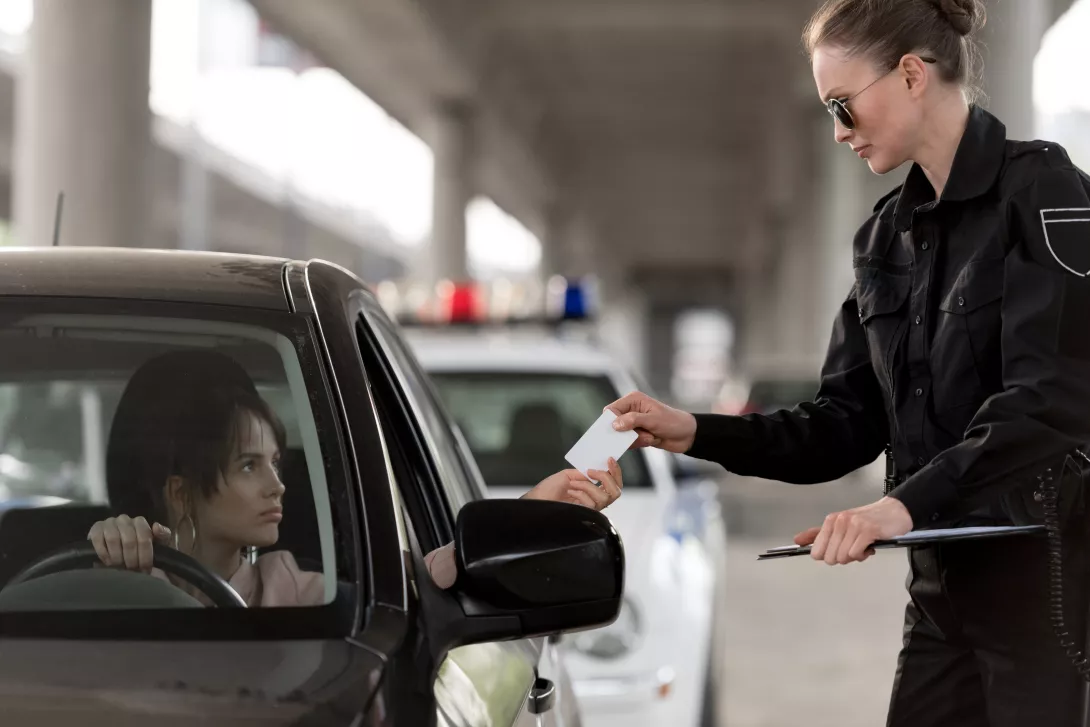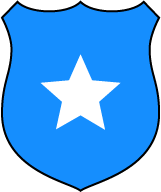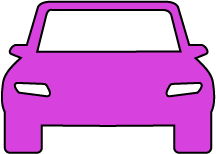What happens if I'm pulled over while driving?
Last Reviewed:
Reviewed By:

If you are driving and the police signal for you to pull over you must do so as soon as it is safe
There are a few things you need to do if asked
First thing to know is that police have a broad discretion to stop people while they are driving. They don’t need a warrant.
As the DRIVER of a vehicle you are required to provide if asked:
- Your licence
- A copy of the vehicle’s insurance and registration
- A roadside breath sample
- In the case of a collision, an accident report
Your licence
If stopped by the police you will need to provide your licence, name and address. If you are unhoused, you can say that, or tell them that you have “no fixed address.”


Hot Tip
Driving without a valid licence is illegal. There are NO exceptions! You could get a ticket, be charged with an offence or have your car impounded (even if it’s not your car). For more information, visit Driving without a valid driver's licence - Province of British Columbia
Insurance and registration
Insurance and registration are often kept in the glove compartment. If it is a new car to you, check to see that they are there in case you need them. The police may ask you to confirm the registered owner’s name and address and you should answer.


Safety
If you need to reach somewhere to get any documents, let the officer know what you are doing before you do it e.g. “the insurance documents are in the glove compartment so I’m going to open it to get them”.
Roadside breath sample
If the police ask, you must give a roadside breath sample. You do not have the right to speak to a lawyer before giving a roadside breath sample.
If the police want to take you to a police station to do a breathalyzer test, you do have the right to speak to a lawyer (and you should) before taking the test.

Duties after a collision
- Remain at the scene or return immediately
- Render all reasonable assistance, and
- Produce, in writing, your name and address, the registered owner’s name and address, the vehicle licence number, and particulars of insurance.

Do I have to answer the police officer’s questions?
As the driver, you do not need to make a statement or answer questions form police other than to:
- Identify yourself
- Provide your licence, insurance, registration
- Provide a breath sample
- Provide your name, address and driver’s licence, and produce the vehicle ownership papers if you were involved in a collision
If you refuse to provide the above information when required you could get into more trouble. Remember, everything you say can be used against you!

The police asked to search my car… What can I do?
Police can search your vehicle if:
- You give them permission (you do not have to give them permission!)
- They have a warrant
- They find you committing an offence in the car
- Have reasonable grounds to believe you have illegal drugs, alcohol or weapons in the car
- They have arrested you
Otherwise if the police ask to search your car you can say no! If they decide to search your car anyway, make it clear that you are not consenting to the search. Do not block the police from searching your car, even if you think they are doing something wrong. You could be charged with a separate offence.

 Crime & Police
Crime & Police Money Stuff
Money Stuff Health & Sexuality
Health & Sexuality Legal Life Skills
Legal Life Skills Driving
Driving Family
Family Work & School
Work & School Housing
Housing Basic Rights
Basic Rights